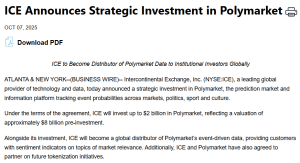MYX Finance Integrates Chainlink Data Standard for Permissionless Perpetual Trading

MYX Finance, a popular perpetual trading infrastructure entity, has officially integrated the Chainlink Data Standard of Chainlink, a leading oracle platform. The integration aims to provide seamless and permissionless perpetual trading. As mentioned in the official press release shared by MYX Finance, the upgrade delivers institutional-level efficiency and precision for on-chain markets. Hence, the development enables verifiable and real-time data across EVM-compatible blockchains.
MYX Finance Advances Permissionless Trading in Perpetual Markets with Chainlink Data Standard
By integrating the Chainlink Data Standard, MYX Finance provides permissionless trading across EVM chains. Additionally, with the Chainlink DataLink and Data Streams, MYX gets access to data with ultra-low latency. This strengthens the objective of MYX Finance to bring reliability and seamlessness to decentralized perpetual industry just like the conventional financial platforms.
Apart from that, the exclusive Chainlink integration lets MYX Finance make further progress in establishing permissionless and open perpetual markets. Thus, the Chainlink-driven upgrade enables markets to grow organically while maintaining institutional-scale precision and performance. This partnership denotes a notable landmark in harmonizing real-world market efficiency with on-chain execution. This ensures that DeFi consumers experience transparency and consistent accuracy.
Simultaneously, the integration utilizes the sub-second price latency technology of Chainlink, guaranteeing the instant updation of the market data. Keeping this in view, the traders can leverage more accurate and faster trade execution without any compromise on security or decentralization. In the same vein, liquidity-rich bid-ask spreads offer comprehensive insights into the wider market depth.
Chainlink-Driven Infrastructure Bolsters Transparency to Revolutionize DeFi
The respective move enhances the protocol stability and risk management mechanisms of MYX. Additionally, the advanced oracle infrastructure of Chainlink has already hit the huge amount of more than $26T when it comes to on-chain transfer value. It enables substantial reliability and robust uptime to build user confidence. With this infrastructure’s adoption, MYX allows consumers to trade on an entity supported by high-performance data access, precision, and proven security.
According to MYX Finance, the Chainlink Data Standard’s integration is more than just a technical advancement. Hence, it expands access to comprehensively transparent financial ecosystems. Ultimately, this development fortifies MYX’s endeavors to develop a cutting-edge platform for transparent, permissionless, and provable perpetual trading for everyone to redefine DeFi.
You May Also Like

Bitcoin Breaks Below $100K But Stablecoin Inflows Hint at Quiet Re-Risking

Polymarket To Provide UFC, Zuffa Boxing With Real-Time Fan Predictions
